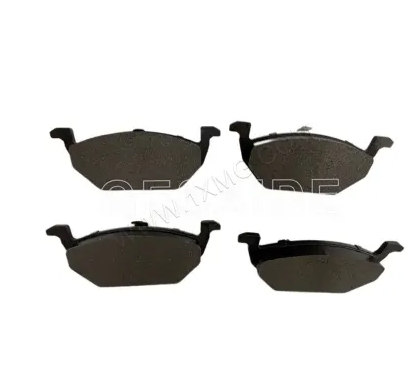How do I determine the right auto part for my vehicle?
Finding the right auto part for your vehicle can be a daunting task, especially with the wide variety of options available in the market. Whether you're looking to replace a worn-out component or upgrade your vehicle, it's crucial to choose the correct auto part that not only fits your vehicle but also meets your specific needs. In this article, we will guide you through the process of determining the right auto part for your vehicle, ensuring a successful and satisfying purchase.
Identify the Exact Part You Need
The first step in determining the right auto part for your vehicle is to accurately identify the specific part you require. This involves understanding your vehicle's make, model, year, and engine type. The easiest way to do this is by referring to your vehicle's owner's manual or maintenance guide. These resources will provide detailed information about the various components in your vehicle and help you pinpoint the exact part you need.
Consider OEM or Aftermarket Options
Once you know the specific part you require, you'll need to decide whether you want to purchase an Original Equipment Manufacturer (OEM) part or an aftermarket part. OEM parts are manufactured by the same company that made the original part for your vehicle, ensuring a precise fit and similar performance. On the other hand, aftermarket parts are produced by third-party manufacturers and offer a wider range of options, including different brands and price points. Consider your budget, warranty preferences, and desired level of performance when choosing between OEM and aftermarket options.
Research and Compare Brands
If you opt for aftermarket auto parts, it's essential to research and compare different brands before making a final decision. Look for reputable manufacturers known for producing high-quality parts that are compatible with your vehicle. Read customer reviews, check for certifications or industry awards, and compare prices to ensure you're selecting a reliable and trusted brand. Pay attention to factors such as durability, compatibility, and customer satisfaction when evaluating different brands.
Consult with Experts or Professionals
If you're unsure about the specific auto part you need or have any doubts during the selection process, it's always beneficial to consult with experts or professionals. Visit an authorized dealership, speak to knowledgeable auto technicians, or seek advice from experienced auto parts specialists. They can provide valuable insights, help you understand technical specifications, and recommend the most suitable options based on your vehicle's requirements.
Verify Fitment and Compatibility
Before making a purchase, double-check the fitment and compatibility of the auto part with your vehicle. Many online retailers and parts manufacturers provide compatibility tools or databases where you can enter your vehicle's details to verify if the part is suitable. Pay attention to details such as dimensions, model range, and engine specifications to ensure a perfect match. This step is crucial to avoid purchasing a part that doesn't fit or is incompatible with your vehicle.
Check for Warranty and Return Policies
Lastly, before finalizing your purchase, review the warranty and return policies associated with the auto part. Understanding the warranty coverage and the return process will provide you with peace of mind and protection in case the part is defective or doesn't meet your expectations. Reputable manufacturers or retailers often offer warranties that guarantee the quality and performance of their products, making it easier for you to make a confident purchase decision.
Conclusion
Determining the right auto part for your vehicle involves a systematic approach that considers your vehicle's specifications, budget, and quality requirements. By accurately identifying the specific part you need, considering OEM or aftermarket options, researching brands, seeking expert advice, verifying fitment and compatibility, and reviewing warranty and return policies, you can ensure a successful purchase. Remember, investing time and effort in selecting the right auto part will not only enhance your vehicle's performance but also contribute to its overall longevity.
308
0
0


Comments
All Comments (0)